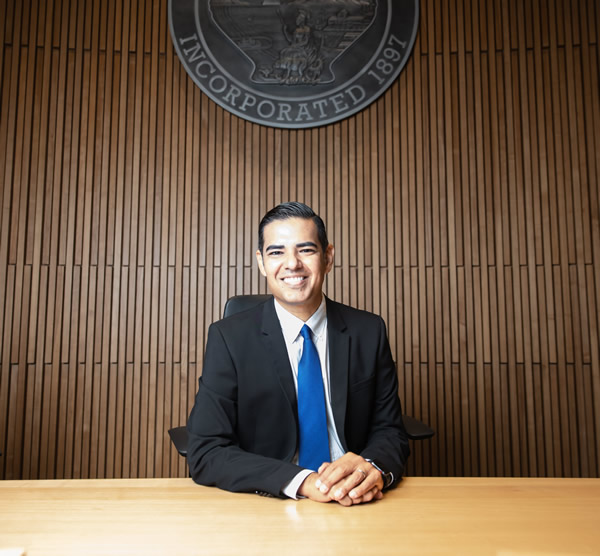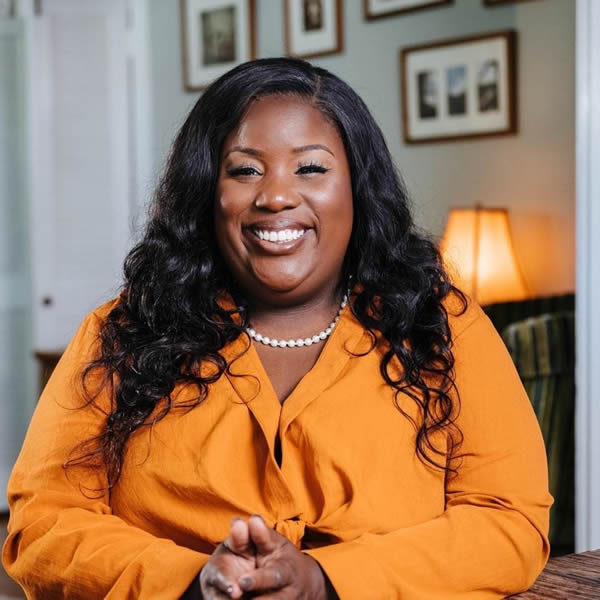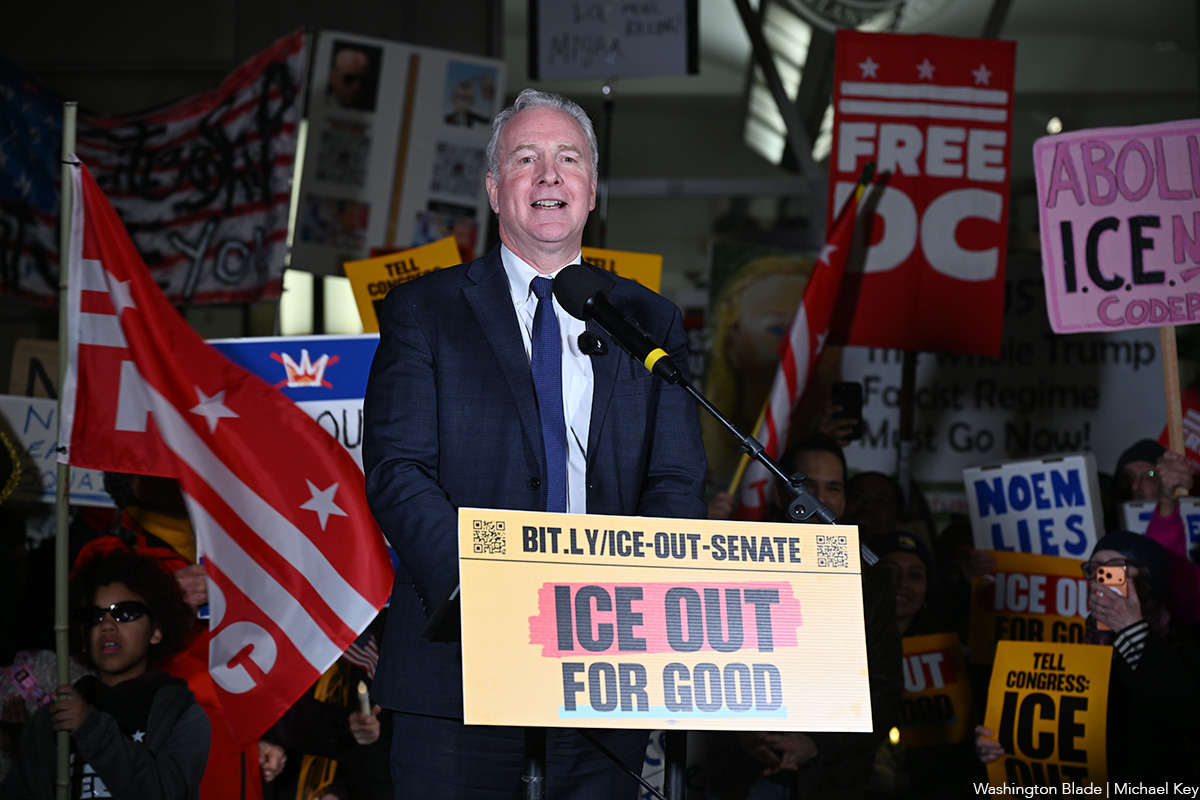Politics
Meet five trailblazing LGBTQ candidates of 2022
These queer politicians are running to make a difference

Each year, more LGBTQ candidates run and are elected to serve in local, state, and federal offices. And 2022 is shaping up to be no different.
As of the 2021 election cycle, there are more than 1,000 out LGBTQ representatives in the United States. Several LGBTQ trailblazers are running for office in 2022; here are five candidates to keep your eye on this year.
Jasmine Beach-Ferrara

Current position: Buncombe County Commissioner
Position sought: U.S. House of Representatives, District 14
After serving as Buncombe county commissioner in North Carolina, Jasmine Beach-Ferrera is making a change and running for the U.S. House of Representatives.
Beach-Ferrara, who is a lesbian, was elected in 2016 and reelected in 2020. She is also an ordained minister in the United Church of Christ and the founding executive director of the Campaign for Southern Equality.
She said it’s been a “tremendous honor” to serve as a county commissioner. During her tenure, Beach-Ferrara has been pushing for policy focused on early childhood education and opioid epidemic response, as well as pandemic relief projects.
“Local government is such a powerful part of how government happens in our country. It’s so immediate in terms of impacting people’s lives so quickly,” she said. “Personally, I really just love having the opportunity to serve in that way and it’s been a big motivator for me in terms of why I’m now seeking to serve on the federal level.”
If elected, Beach-Ferrara wants to focus on building bridges and listening to what her constituents need, which are needed priorities that have been lost under toxic leadership in the state, she said.
While on the campaign trail, Beach-Ferrara said being out has been a big strength for her.
“The power of people running and being out is that the moment you come out, you’re communicating a few things … honesty and authenticity, and letting people know that you are showing up exactly as you are,” she said.
Robert Garcia

Current position: Mayor of Long Beach, Calif.
Position sought: U.S. House of Representatives, CA-42
Mayor Robert Garcia is running for the U.S. House of Representatives.
As the mayor of Long Beach, Calif., Garcia forged a national model for testing and the COVID-19 vaccination rollout. Long Beach was the first municipality to vaccinate educators in California. He is the first mayor of Long Beach to appoint a majority of women to board and commissions, as well.
Garcia, who is gay, immigrated to the United States from Peru when he was five years old. Becoming a citizen was “the best thing that ever happened” to him, he said. Now, he is running for Congress to help give people the same opportunities given to him.
“Patriotism is about helping people. It’s about taking care of your neighbor. It’s about standing up for the values that made this country and that includes supporting kids like me who are immigrants,” Garcia said.
If elected, Garcia wants to focus on building infrastructure as he has as mayor, expand LGBTQ rights and provide pathways to citizenship for folks that are undocumented.
“I understand the immigration system because I went through it,” Garcia said. “I know how people struggle and how folks navigate a complex and burdensome system.”
Michele Rayner-Goolsby

Current position: Florida House of Representatives, District 70
Position sought: U.S. House of Representatives, FL-13
Former Civil Rights Attorney Michele Rayner-Goolsby wants to bring a fresh perspective to Congress.
Currently serving as the first out queer Black representative in the Florida Legislature, her priority is advocating for her constituents.
“People are hungry for a different type of leadership — that is rooted in community, that is rooted in transparency, that is rooted in accountability,” she said.
Rayner-Goolsby’s experience as a Black queer woman is her “best strength,” she said.
“I’ve had to fight and earn everything that I have ever had in my life,” she said. That shapes the way I think about policy and legislation.”
As a statehouse representative, Rayner-Goolsby has spearheaded COVID-19 vaccine pop-up distribution sites and passed legislation like an urban agriculture bill to bring community gardens to food deserts and a workforce development bill that establishes an apprenticeship approach to becoming a certified nursing assistant.
If elected, Rayner-Goolsby wants to build legislation that outlasts her tenure, she said. She wants to pass comprehensive voting rights legislation, environmental justice protections and address the affordable housing crisis.
“We have got to come up with creative solutions,” she said. “And we’ve got to have the political will to figure it out. It’s not the lack of resources, it’s the lack of political will.”
Brianna Titone

Current position: Colorado House of Representatives, District 27
Position sought: Colorado House of Representatives, District 27
Brianna Titone, an incumbent in the Colorado Legislature, is seeking reelection after serving District 27 for two terms.
Titone is the first transgender person to be elected to the Colorado Statehouse.
After seeing three trans people win elections in 2017, Titone was inspired to run for the statehouse seat. Her background as a geologist and personal identity combined to give her a unique and powerful skillset.
“As a scientist, I’m able to understand and look at the data,” Titone said. “And as a trans person, I know how to be empathetic to people’s issues and problems.”
One of her biggest accomplishments was bringing back and passing the bill banning the “Gay and Trans Panic Defense” after the legislation was nearly killed.
“I pleaded with the Senate and the House leadership to get that bill back on the schedule. And we were able to do it,” she said. “I wasn’t going to let that issue have to wait another year to be passed.”
Titone has been on the frontlines in pushing against efforts to remove trans kids from sports, as well.
“I’m a big advocate for communities coming together,” Titone said. “And sports is a great way for people to come together and rally around the people in their community. When we leave kids out or we force kids out of that kind of activity, we’re really undermining community.”
Todd Delmay

Current position: Entrepreneur
Position sought: Florida State House of Representatives, District 100
Todd Delmay, a father, husband, and entrepreneur, has been on the frontlines of LGBTQ advocacy for years.
Delmay, who is gay, adopted his son with his partner in 2010 when it was still illegal in Florida. Delmay’s husband adopted their son Blake as a single parent, and Delmay was told to bring friends and “blend in the background” to not arouse suspicion. Later that year the law was overturned and Delmay adopted Blake as a second parent, but the process was humiliating and upsetting, he said.
In 2014, Delmay and his partner were one of the couples that sued for the right to marry in Florida. In 2015, Delmay and his husband were one of the first gay couples to marry in the state.
“That was a pretty empowering moment,” Delmay said.
Delmay is excited to bring his unique perspective as a gay parent to the statehouse, he said. Adoption rights, for example, is an issue Delmay can speak to personally.
“When LGBTQ people are in the room, it changes the conversation,” Delmay said.
Delmay is the CEO of Delmay Corporation, an event technology and software company. If elected, Delmay hopes to support small businesses, pass legislation concerning the environment and fight for civil rights.
“It’s important that the legislature always reflect the people because there are so many different perspectives,” Delmay said. “And if we have any hopes of turning the state blue, we need to make sure that we are speaking to everyone and that the legislature represents everyone.”
Congress
McBride, other US lawmakers travel to Denmark
Trump’s demand for Greenland’s annexation overshadowed trip

Delaware Congresswoman Sarah McBride is among the 11 members of Congress who traveled to Denmark over the past weekend amid President Donald Trump’s continued calls for the U.S. to take control of Greenland.
McBride, the first openly transgender person elected to Congress, traveled to Copenhagen, the Danish capital, with U.S. Sens. Chris Coons (D-Del.), Thom Tillis (R-N.C.), Jeanne Shaheen (D-N.H.), Dick Durbin (D-Ill.), and Lisa Murkowski (R-Alaska) and U.S. Reps. Steny Hoyer (D-Md.), Gregory Meeks (D-N.Y.), Madeleine Dean (D-Pa.), Don Bacon (R-Neb.), and Sarah Jacobs (D-Calif.). The lawmakers met with Danish Prime Minister Mette Frederiksen and Greenlandic MP Pipaluk Lynge, among others.
“I’m grateful to Sen. Coons for his leadership in bringing together a bipartisan, bicameral delegation to reaffirm our support in Congress for our NATO ally, Denmark,” said McBride in a press release that detailed the trip. “Delaware understands that our security and prosperity depend on strong partnerships rooted in mutual respect, sovereignty, and self-determination. At a time of growing global instability, this trip could not be more poignant.”
Greenland is a self-governing territory of Denmark with a population of less than 60,000 people. Trump maintains the U.S. needs to control the mineral-rich island in the Arctic Ocean between Europe and North America because of national security.
The Associated Press notes thousands of people on Saturday in Nuuk, the Greenlandic capital, protested against Trump. British Prime Minister Keir Starmer is among those who have criticized Trump over his suggestion the U.S. would impose tariffs against countries that do not support U.S. annexation of Greenland.
A poll that Sermitsiaq, a Greenlandic newspaper, and Berlingske, a Danish newspaper, commissioned last January indicates 85 percent do not want Greenland to become part of the U.S. The pro-independence Demokraatit party won parliamentary elections that took place on March 12, 2025.
“At this critical juncture for our countries, our message was clear as members of Congress: we value the U.S.-Denmark partnership, the NATO alliance, and the right of Greenlanders to self-determination,” said McBride on Sunday in a Facebook post that contained pictures of her and her fellow lawmakers meeting with their Danish and Greenlandic counterparts.
Congress
Van Hollen speaks at ‘ICE Out for Good’ protest in D.C.
ICE agent killed Renee Nicole Good in Minneapolis on Jan. 7

U.S. Sen. Chris Van Hollen (D-Md.) is among those who spoke at an “ICE Out for Good” protest that took place outside U.S. Customs and Border Protection’s headquarters in D.C. on Tuesday.
The protest took place six days after a U.S. Immigration and Customs Enforcement agent shot and killed Renee Nicole Good, a 37-year-old woman in Minneapolis.
Good left behind her wife and three children.
(Video by Michael K. Lavers)
Congress
Advocates say MTG bill threatens trans youth, families, and doctors
The “Protect Children’s Innocence” Act passed in the House

Georgia Congresswoman Marjorie Taylor Greene has a long history of targeting the transgender community as part of her political agenda. Now, after announcing her resignation from the U.S. House of Representatives, attempting to take away trans rights may be the last thing she does in her official capacity.
The proposed legislation, dubbed “Protect Children’s Innocence Act” is among the most extreme anti-trans measures to move through Congress. It would put doctors in jail for up to 10 years if they provide gender-affirming care to minors — including prescribing hormone replacement therapy to adolescents or puberty blockers to younger children. The bill also aims to halt gender-affirming surgeries for minors, though those procedures are rare.
Greene herself described the bill on X, saying if passed, “it would make it a Class C felony to trans a child under 18.”
According to KFF, a nonpartisan source for health policy research, polling, and journalism, 27 states have enacted policies limiting youth access to gender-affirming care. Roughly half of all trans youth ages 13–17 live in a state with such restrictions, and 24 states impose professional or legal penalties on health care practitioners who provide that care.
Greene has repeatedly introduced the bill since 2021, the year she entered Congress, but it failed to advance. Now, in exchange for her support for the National Defense Authorization Act, the legislation reached the House floor for the first time.
According to the 19th, U.S. Rep. Sarah McBride (D-Del.), the first trans member of Congress, rebuked Republicans on the Capitol steps Wednesday for advancing anti-trans legislation while allowing Affordable Care Act tax credits to expire — a move expected to raise health care costs for millions of Americans.
“They would rather have us focus in and debate a misunderstood and vulnerable one percent of the population, instead of focusing in on the fact that they are raiding everyone’s health care,” McBride said. “They are obsessed with trans people … they are consumed with this.”
Polling suggests the public largely opposes criminalizing gender-affirming care.
A recent survey by the Human Rights Campaign and Global Strategy Group found that 73 percent of voters in U.S. House battleground districts oppose laws that would jail doctors or parents for providing transition-related care. Additionally, 77 percent oppose forcing trans people off medically recommended medication. Nearly seven in 10 Americans said politicians are not informed enough to make decisions about medical care for trans youth.
The bill passed the House and now heads to the U.S. Senate for further consideration.
According to reporting by Erin Reed of Erin In The Morning, three Democrats — U.S. Reps. Henry Cuellar and Vicente Gonzalez of Texas and Don Davis of North Carolina — crossed party lines to vote in favor of the felony ban, joining 213 Republicans. A total of 207 Democrats voted against the bill, while three lawmakers from both parties abstained.
Advocates and lawmakers warned the bill is dangerous and unprecedented during a multi-organizational press call Tuesday. Leaders from the Human Rights Campaign and the Trevor Project joined U.S. Rep. Becca Balint (D-Vt.), Dr. Kenneth Haller, and parents of trans youth to discuss the potential impact of restrictive policies like Greene’s — particularly in contrast to President Donald Trump’s leniency toward certain criminals, with more than 1,500 pardons issued this year.
“Our MAGA GOP government has pardoned drug traffickers. They’ve pardoned people who tried to overthrow the government on January 6, but now they want to put pediatricians and parents into a jail cell for caring for their kids,” said Human Rights Campaign President Kelley Robinson. “No one asked for Marjorie Taylor Greene or Dan Crenshaw or any politician to be in their doctor’s office, and they should mind their own business.”
Balint, co-chair of the Congressional Equality Caucus, questioned why medical decisions are being made by lawmakers with no clinical expertise.
“Parents and doctors already have to worry about state laws banning care for their kids, and this bill would introduce the risk of federal criminal prosecution,” Balint said. “We’re talking about jail time. We’re talking about locking people up for basic medical care, care that is evidence-based, age-appropriate and life-saving.”
“These are decisions that should be made by doctors and parents and those kids that need this gender-affirming care, not certainly by Marjorie Taylor Greene.”
Haller, an emeritus professor of pediatrics at St. Louis University School of Medicine, described the legislation as rooted in ideology rather than medicine.
“It is not science, it is just blind ideology,” Haller said.
“The doctor tells you that as parents, as well as the doctor themselves, could be convicted of a felony and be sentenced up to 10 years in prison just for pursuing a course of action that will give your child their only chance for a happy and healthy future,” he added. “It is not in the state’s best interests, and certainly not in the interests of us, the citizens of this country, to interfere with medical decisions that people make about their own bodies and their own lives.”
Haller’s sentiment is echoed by doctors across the country.
The American Medical Association, the nation’s largest organization that represents doctors across the country in various parts of medicine has a longstanding support for gender-affirming care.
“The AMA supports public and private health insurance coverage for treatment of gender dysphoria and opposes the denial of health insurance based on sexual orientation or gender identity,” their website reads.
Rodrigo Heng-Lehtinen, senior vice president of public engagement campaigns at the Trevor Project, agreed.
“In Marjorie Taylor Greene’s bill [it] even goes so far as to criminalize and throw a parent in jail for this,” Heng-Lehtinen said. “Medical decisions should be between patients, families, and their doctors.”
Rachel Gonzalez, a parent of a transgender teen and LGBTQ advocate, said the bill would harm families trying to act in their children’s best interests.
“No politician should be in any doctor’s office or in our living room making private health care decisions — especially not Marjorie Taylor Greene,” Gonzalez said. “My daughter and no trans youth should ever be used as a political pawn.”
Other LGBTQ rights activists also condemned the legislation.
Tyler Hack, executive director of the Christopher Street Project, called the bill “an abominable attack on the transgender community.”
“Marjorie Taylor Greene’s last-ditch effort to bring her 3-times failed bill to a vote is an abominable attack on the transgender community and further cements a Congressional career defined by hate and bigotry,” they said. “We are counting down the days until she’s off Capitol Hill — but as the bill goes to the floor this week, our leaders must stand up one last time to her BS and protect the safety of queer kids and medical providers. Full stop.”
Hack added that “healthcare is a right, not a privilege” in the U.S., and this attack on trans healthcare is an attack on queer rights altogether.
“Marjorie Taylor Greene has no place in deciding what care is necessary,” Hack added. “This is another attempt to legislate trans and queer people out of existence while peddling an agenda rooted in pseudoscience and extremism.”
U.S. Rep. Mark Takano (D-Calif.), chair of the Congressional Equality Caucus, also denounced the legislation.
“This bill is the most extreme anti-transgender legislation to ever pass through the House of Representatives and a direct attack on the rights of parents to work with their children and their doctors to provide them with the medical care they need,” Takano said. “This bill is beyond cruel and its passage will forever be a stain on the institution of the United States Congress.”
The bill is unlikely to advance in the Senate, where it would need 60 votes to pass.




















